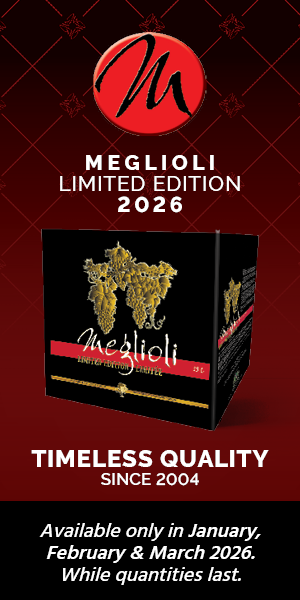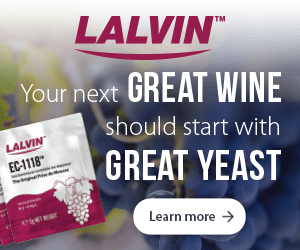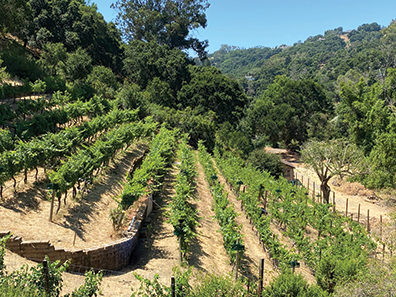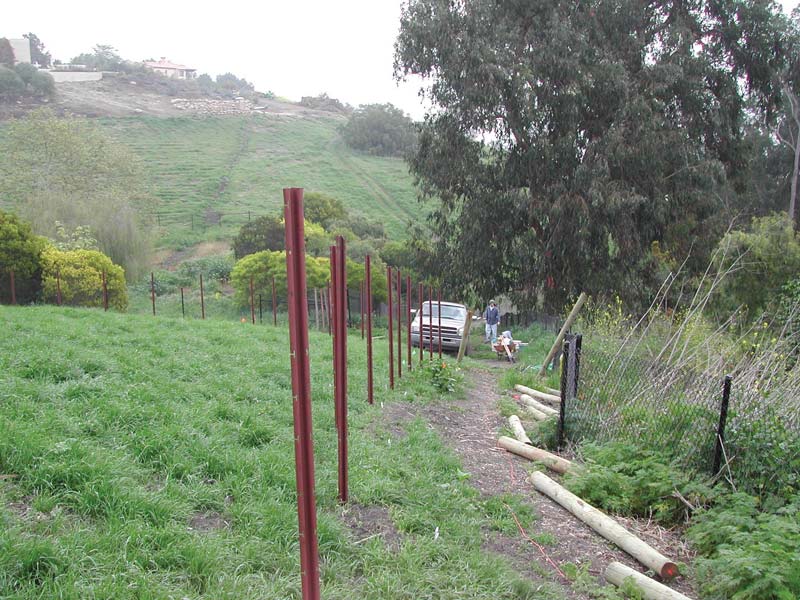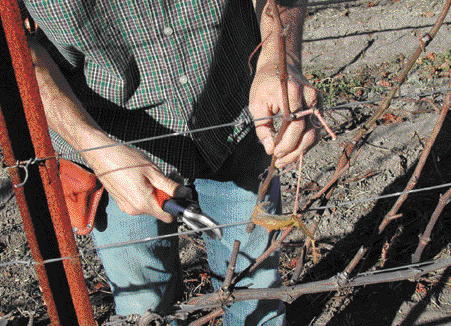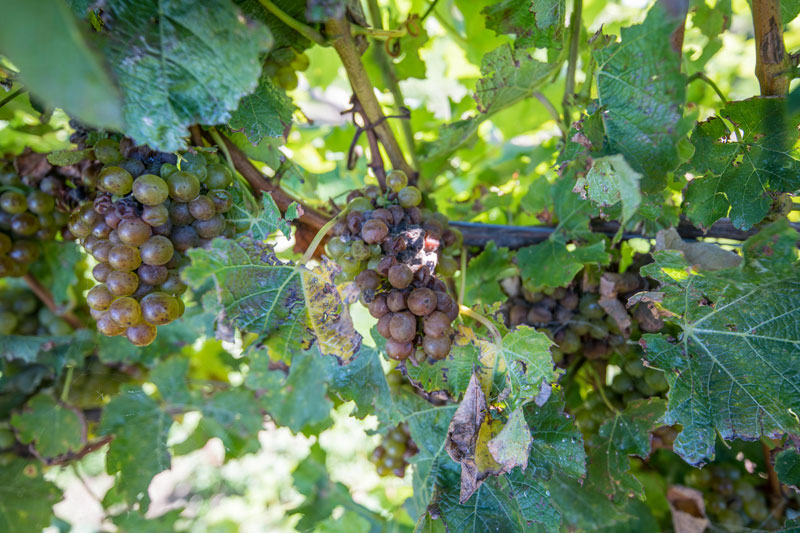Organic Grape Growing: Tips from the Pros
Growing grapes organically, like any other crop, is often more work than using synthetic fertilizers, solutions and sprays. But in the end, many winemakers who embrace organic growing believe the resulting wines display the purity of the fruit the way that Mother Nature intended.
Joy Andersen began her winemaking career at Chateau Ste. Michelle
Many producers believe organically grown wine grapes and the wines made from them are of superior quality to standard production and display a purer expression of what Mother Nature intended. Intuitively, many believe that the more “natural” or “unadulterated” the production, the better the quality. No doubt growing grapes organically and vinting those grapes organically requires more hands-on attention than in standard production, and I believe it is this “extra” attention that results in better quality.
It is my belief that taking good care of vineyards and the local environment are essential steps towards advancing the natural quality of the Northwest and to make the best wines possible. All of Snoqualmie Vineyards’ wines are made using sustainable and organic practices, which I believe results in better quality wines. Additionally, Snoqualmie was one of the first wineries in Wash-ington to craft wines from USDA-certified organically grown grapes from which our ECO tier is exclusively developed. We are proud that today, Snoqualmie has the largest certified organic vineyard in the state.
On a large commercial scale, the biggest difficulty that comes along with the organic certification of both organic grape growing and organic processing is the additional documentation and record keeping. That certainly requires additional time and extra attention to detail.
We usually see a slight reduction in tons per acre because we are not using fertilizers that are used in some vineyards, but I believe the results are either the same or better quality from the organic vines versus standard vines.
For amateurs wishing to plant an organic home vineyard, my recommendation, if possible, is to plant to “virgin” soil to avoid any residual impact from previous crop or management practices. Another thing to be aware of is that there are little to no organic yeast nutrients available to aid fermentation, so it can be a struggle to have clean and complete fermentation if your juice is low in nutrients. The best solution is to source fruit that has adequate nutrient levels to avoid any need to supplement the juice. If that isn’t possible, there are a couple practices that can help with fermentation in a limited fashion: Avoid radical changes to the fermentation environment so as not to shock or inhibit the yeast growth. Also, inducing air into an active fermentation can sometimes help, particularly in a closed vessel ferment where the yeast may be oxygen-starved, and adding autolyzed yeast (essentially dead yeast cells) can sometimes help a struggling ferment by giving the juice a small shot of additional amino acids —and thus a small boost in nutrients. Lastly, I sometimes pray too!
Eileen Crane is the Winemaker and President of Domaine Carneros in Napa, California
Our wines have been made from organically grown grapes since our estate vineyards (300+ acres) were certified organic in 2008. We first got into organic vineyards because it was the right thing to do for the employees and guests who sit on the terrace to enjoy the views so they would not be exposed to all of the chemicals. But since then, we have seen real improvements in the wine. I have found that every year the quality of the fruit improves. Each year the wines from our estate vineyards seem to be better balanced, have a better depth of character and a greater mouthfeel.
Part of the difference in quality stems from the fact that organic fertilizers produce more of a complete nutrition, whereas commercial fertilizers are nitrogen-based. I often liken it to the difference between feeding a kid well-made, home-produced meals instead of serving them fast food — there’s lots of calories in fast food but they’re not exactly the calories that will build a nutritious diet.
While I believe they are outweighed by the benefits, there are challenges with organic vineyards too. They result in smaller crops and require more attention, which means it is more expensive. It costs us 5-10% more to be organic than if we used other farming practices. It also means we need to be more creative about pest management. For instance, we have owl boxes in the vineyards for rodent control. To control mealybugs, you can spray horrible chemicals or you can do as we do and have chickens take care of that problem. Organic farmers have to think outside the box. We also rely on cover crops to provide soil nutrients in place of fertilizer. Using natural compost is good too, and one of the things we do is recycle the pomace (the grape skins left behind after pressing) in the vineyard.
